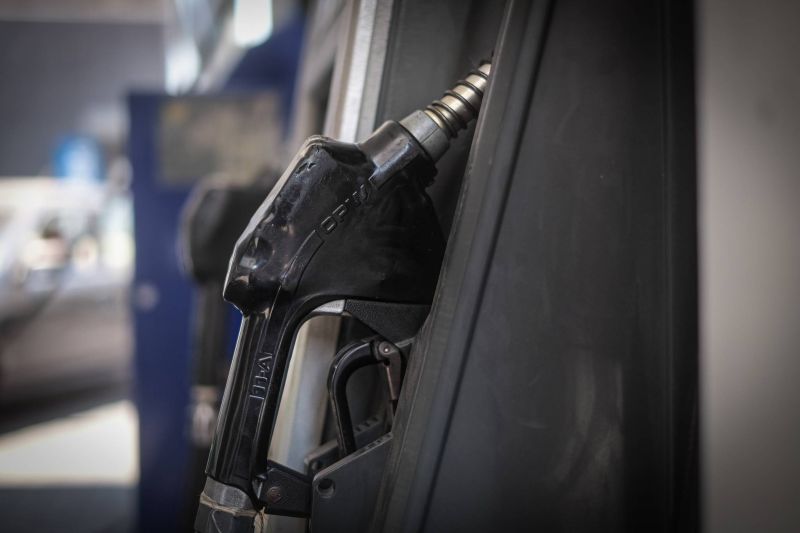
Fuel prices have shot up 30–40 percent across the board after the government decided to subsidize fuel imports at a rate of LL3,900 to the US dollar instead of at the official, LL1,507.5 rate. (Credit: João Sousa/L’Orient Today)
Want to get the Morning Brief by email? Click here to sign up.
Fuel prices have shot up following the government’s decision to subsidize fuel imports at an exchange rate of LL3,900 to the US dollar. Effective today, the price of 20 liters of 95-octane gasoline is set at LL61,000 (up from LL45,200), while the same amount of 98-octane gas will cost LL62,900 (up from LL46,600). Twenty liters of diesel will cost LL46,100 (up from LL33,300). A tank of household gas is now set at LL37,600 (up from LL28,400). The new prices reflect a 30–40 percent increase across the board, even as the monthly minimum wage is now worth less than $40 on the parallel market due to the lira’s depreciation. The price hike follows Banque du Liban’s confirmation yesterday that it will sell dollars to commercial banks to finance “all types” of fuel imports at the LL3,900 exchange rate. The central bank said it would subsidize 100 percent of the cost of fuel imports at this rate, whereas it had previously subsidized 90 percent of fuel imports at the official rate of LL1,507.5 to the dollar. Lengthy queues persisted at gas stations on Monday as customers sought to buy fuel in anticipation of the price increase.
Protests against worsening living conditions raged on yesterday as the lira continued trading at more than LL17,000 to the US dollar and fuel and other supply shortages persisted unabated. Demonstrators in Tripoli used a crane to install cement barricades to obstruct the Abu Ali roundabout, and major roads were cut off in Saida, Tripoli, Beirut, Aley and the Chouf. Meanwhile, scuffles continued to break out at gas stations, and several demonstrators were reportedly injured during a confrontation with the Lebanese Army in Saida’s Martyrs’ Square. As the security situation in the county destabilized on Monday, President Michel Aoun announced that he would convene the Higher Defense Council today.
Commercial bank branches throughout Lebanon will close today after scores of protesters barged into a Beirut bank and allegedly assaulted staff. A source on the scene in the capital’s Hamra area told L’Orient Today that the demonstrators, who were associated with a local NGO called the Banin Charity Association, stormed the headquarters of the Lebanese Swiss Bank to demand that it execute money transfers to fund overseas medical procedures for the NGO’s beneficiaries. According to the bank, at least some of the funds were ultimately released. Following the incident, which injured three staff members, including one who was hospitalized, the Lebanese Swiss Bank announced that it would shut its doors indefinitely, until its employees’ safety could be assured. The Association of Banks in Lebanon announced that commercial banks across the country would close on Tuesday in solidarity. Banks have come under increasing pressure since the financial crisis accelerated in 2019 for illegally imposing ever-tighter restrictions on depositors’ ability to access their money. Amid the financial collapse, ABL is set to hold internal elections today.
A large explosion caused extensive damage at the Furn al-Shubbak office of a prominent lawyer and judge. The blast, whose cause was still unknown as of last night, occurred yesterday at the office of Shaker El Hachem, the lawyer, and Judge Peter Germanos. Despite speculation that the explosion was a targeted attack on Hachem, who represents the former head of the Beirut port, Hassan Koraytem, an accidental cause has not yet been ruled out. Koraytem was arrested last year in relation to the catastrophic explosion at the port on Aug. 4.
Amid prolonged electricity cuts, Rafik Hariri University Hospital has begun rationing electricity and turning off air-conditioning in all areas except those used for medical purposes, the hospital’s head wrote in a tweet. Firass Abiad also shared an image of a request he sent to caretaker Energy Minister Raymond Gajar for support in maintaining the hospital’s electricity supply. Similar pleas have been made by representatives from a range of industries as they struggle to overcome the interrelated and compounding crises caused by fuel and electricity shortages. The head of the Lebanese poultry syndicate recently asked that diesel be delivered to chicken farms before power cuts compromise the well-being of live fowl and the safety of refrigerated chicken meat. Meanwhile, the crises are also compromising the work of the public sector. Operations at the General Security headquarters in Beirut were temporarily halted yesterday when a generator shutdown overlapped with a state power cut.
Correction: A previous version of the Morning Brief stated that two bank staff had been injured during the incident at the Lebanese Swiss Bank. In fact, the bank said three people had been injured.